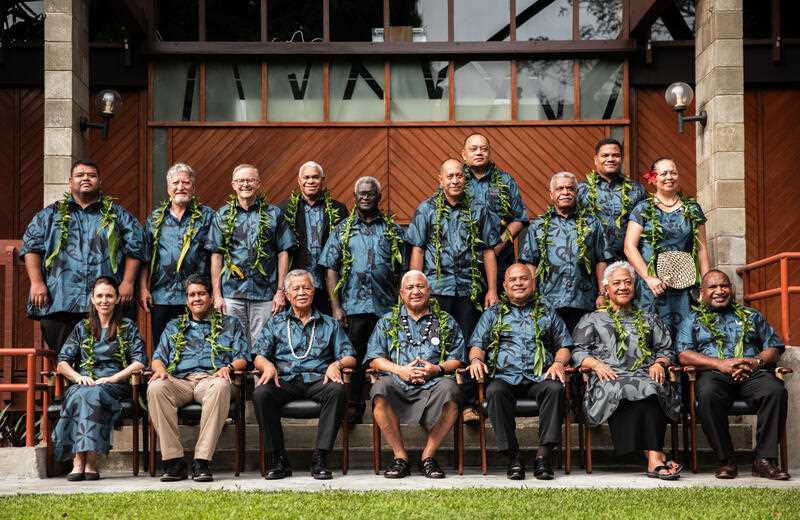Despite evidence to the contrary, Anthony Albanese has claimed regional support for Australia’s climate policies as the Pacific Islands Forum leaders summit wraps up in Fiji.
Pacific leaders spent Thursday in an all-day retreat in Suva from which the final communique will declare a climate emergency.
Prime Minister Albanese exited the retreat declaring a successful summit, with Australia’s new position on climate change “particularly well received”.
“It was also reflected in every single one of the person-to-person dialogues I had with prime ministers and other leaders from our Pacific Island neighbours,” he said.
But Fiji Prime Minister Frank Bainimarama cast doubt on that claim in his press conference after Thursday’s summit.
“Throughout every meeting and discussion I’ve held this week, I have been clear and consistent in our asks for more ambitious climate commitments,” he said.
“Most urgently, it requires that we end our fossil fuel addiction, including coal. That is our ask of Australia.”
Earlier, Mr Bainimarama called out Australia on Twitter.
“Australia’s new climate pledge is a step-up that Fiji has long sought – but out of the duty I owe every young person in the Pacific, I have urged (Mr Albanese) to go further for our family’s shared future by aligning Australia’s commitment to the 1.5-degree target,” he wrote.
Mr Albanese has steadfastly refused to budge on his headline pledge to cut emissions by 43 per cent by 2030, a target which many experts say is inconsistent with 1.5 degrees of global warming – the benchmark level expected at the summit.
Nevertheless, Australia’s standing has improved from the last Pacific leaders’ meeting, which then prime minister Scott Morrison attended in Tuvalu in 2019.
At the time, Tuvalu Prime Minister Enele Sopoaga accused Australia of only being “concerned about saving your economy”.
“I’m concerned about saving my people in Tuvalu and likewise the leaders of other South Pacific small island countries,” he said.
Following Labor’s election win, Australia’s ambition also extends to hosting a forthcoming UN Climate Change Conference on behalf of the Pacific.
Mr Albanese claimed an endorsement from the region for its goal.
“They all expressed support for the bid and you’ll see that reflected in the communique,” he said.
Leaders also claimed a breakthrough on an issue that has clouded the week: the withdrawal of Kiribati.
The Micronesian nation walked away from the forum the weekend before the Suva summit, with Prime Minister Taneti Maamau not engaging with diplomatic outreach.
That changed on Thursday afternoon, when Mr Bainimarama contacted Mr Maamau to convey the forum’s keenness to unite.
“We will spare no efforts in this regard,” Mr Bainimarama said.
A line also appears to have been drawn under the Solomon Islands’ flirtation with closer security ties with China.
Solomons Prime Minister Manasseh Sogavare told journalists an agreement signed earlier this year would not lead to a Chinese military facility on Australia’s doorstep.
“The moment we establish a foreign military base, we immediately become an enemy. And we also put our country and our people as targets for potential military strikes,” he told multiple media outlets.
“There is no military base, nor any other military facility, or institutions in the agreement.”
The communique will reference a “family-first approach to peace and security” and the creation of a new security policy roadmap.
Those commitments are a win for Australia and New Zealand given diplomatic efforts from Canberra and Wellington for Pacific nations to look towards them for regional security.
Next year’s chair will be the Cook Islands, which will host and steer the forum to the 2023 summit.
By Ben McKay in SUVA
Get the latest news, sport, entertainment, lifestyle, competitions and more delivered straight to your inbox with the Canberra Daily Daily Newsletter. Sign up here.



